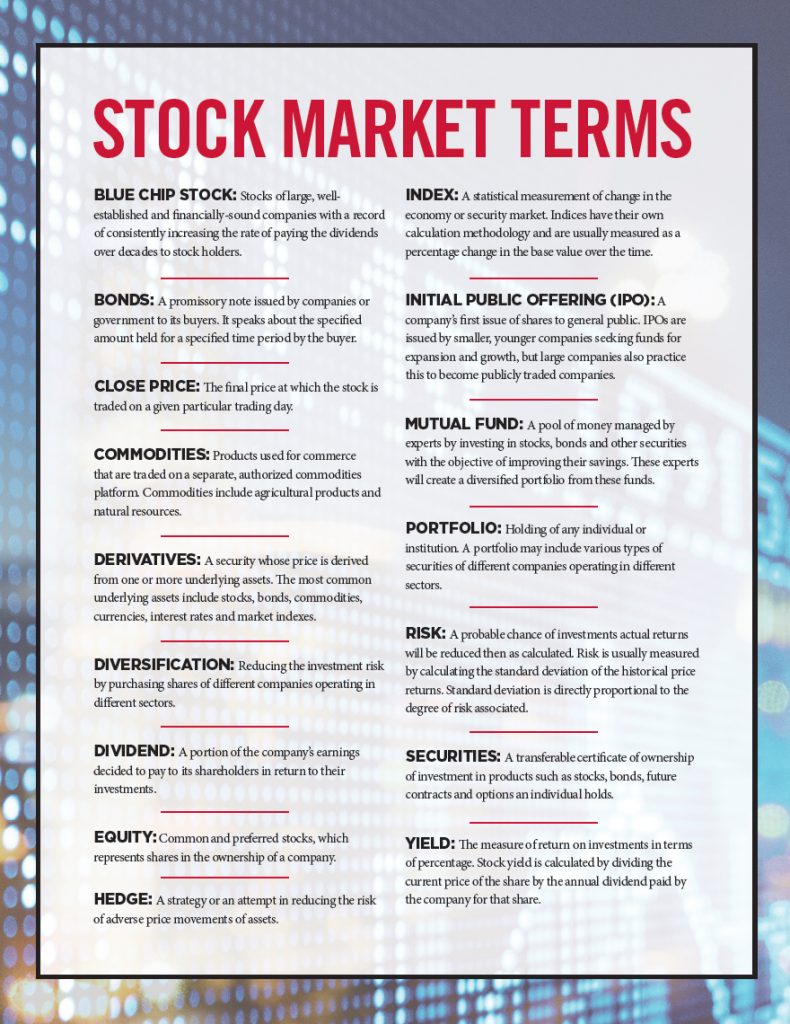By Lance Fleming
How many times have you been enjoying yourself at a party or social event only to hear the conversation suddenly turn to stock tips, bonds, portfolios and brokerage firms? And you stand there, your college degree in art history doing you absolutely no good.
If something similar has happened to you, this quick guide for stock market novices will be of great benefit the next time you find yourself in the aforementioned social situation.
Jody Team, a Certified Financial Planner and owner of Team Financial Strategies, and Abilene Christian University professor of finance Dr. Terry Pope offer a few tips to help you Fake Your Way Through the stock market.
STOCK MARKET BACKGROUND
The vast majority of companies in Abilene are owned by individuals, families or investment firms, which means they are privately held companies, don’t sell stock shares and don’t appear on the stock exchange. Most of those companies are smaller, locally-owned businesses, although companies like Subway and Academy Sports are also privately held.
Some companies, however, like McDonald’s or Walmart, are publicly held, which means they have thousands of owners, each of whom buys stock shares in the company.
When the owners of a company decide to make some of their ownership available to the public, they issue shares of stock that represent the portion of the company they wish to sell. Those shares are purchased by the public in what’s called an Initial Public Offering (IPO). The stock for that company will then be available for trade on a stock exchange and is conveniently identified by a “ticker.”
Each ticker is unique and comprises from one to four letters. Companies will often choose tickers that resemble the company name, are descriptive of the company’s business, or are clever. Examples include: Ford (F), Facebook (FB), Southwest Airlines (LUV), and Apple (AAPL).
Stock exchanges provide a convenient place for people who want to sell shares to get together with people who want to buy shares. The two most widely known stock exchanges in the United States are the New York Stock Exchange and the Nasdaq Stock Market.
“Stock prices per share vary considerably as they represent different levels of ownership in companies with values ranging from thousands to billions of dollars,” Pope said. “For example, a share of Amazon (AMZN) trades for $740, while a share of Ford (F) trades for $12. There are two ways to benefit from stock ownership. One way is to be able to sell shares for more than you paid for them. So, buying a share for $12 and selling the share later for $15 would result in a capital gain of $3, or 25 percent. The other way to benefit from stock ownership is to invest in a company that pays a dividend. A dividend is just a cash payment – typically paid once per quarter – that a company makes to its shareholders. The total benefit of ownership is the sum of the capital gain and dividend.”
MARKET BASICS
Many people – especially first-time investors – think of the stock market as some kind of “magical pot you put your money into and then hope and pray you get more back later,” Team said.
Instead, Team suggests thinking of it more like a farmers’ market, with sellers and buyers who come every day. “When you go to the stock market, you get the opportunity to participate in capitalism. You can buy portions of a company and the blood, sweat and tears that others are putting in to make money, and you get to benefit when it does well.”
To that end, clients must be willing to tolerate the volatile nature of the market, and unfortunately, this is one area where social conversation may not help you out.
“When someone first starts investing in stocks, they often do it on a tip they hear at a dinner party or while visiting with their neighbor,” he said. “Understand that if someone is telling you about the stock they made 100 percent return on, they likely have three or four others that they lost big on. They just aren’t telling you about that part, of course. If you go buy that same stock now, the odds are not in your favor that you will see the same return. Especially if you do not give it time. The people I have seen make the most money investing in individual stocks kept investing in the same ones over very long periods of time.”




























Leave a Reply